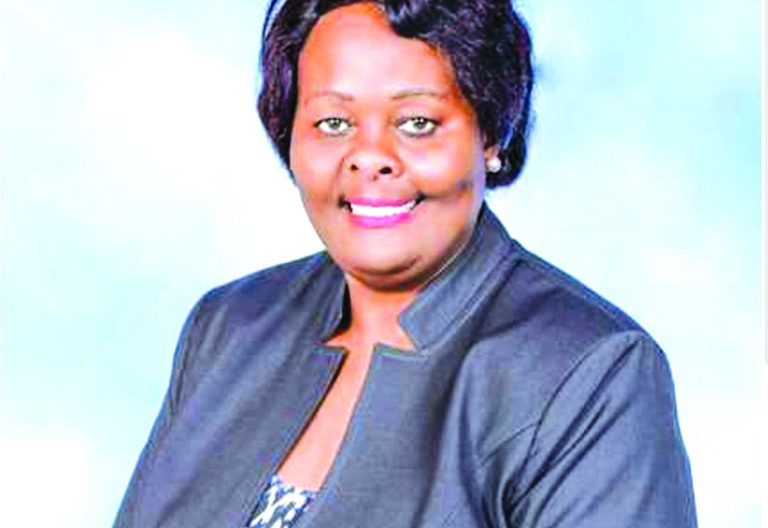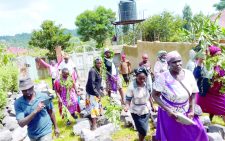Initiatives spearheaded by Kenyan creatives for positive social impact

The creative sector has been an important contributor not only to the economy, but also as a tool for positive political and social change. This has led to the establishment of social enterprises that are championing a better and robust society. Through these unique forums, creatives have been able to tap into their skills and talents, to address social ills affecting the communities in different parts of the country.
Lenga Ugaidi na Talanta
‘Lenga Ugaidi na Talanta’ is an initiative that channels youth creativity towards countering violent extremism, radicalisation and terrorism. It is pegged on a short film, poetry and music competition and targets Kenyan youth aged 35 years and below. The first competition in 2017 attracted hundreds of youth across the country under one course of fighting violent extremism. Registration for this year’s edition starts next week and some of the past themes include the role of social media in radicalisation and terrorism and how to effectively and responsibly respond to terror attacks.
“Other than focusing on terrorism and radicalisation, the 2019 competition will include organised crime as one of the main themes. It will be launched on October 17 at the Kenya National Theatre and will be preceded by a workshop. Other activities organised before the launch are a community walk at Kayole on October 10 and a football bonanza at Baba Dogo grounds on October 13, ” says organiser Godfrey Muhambi.
Participants will be required to create a short video, poem or song (not more than five minutes) to illustrate how to effectively and responsibly respond in the unfortunate event of an attack. The scene may be set in a campus, mall or religious institution, among others, depicting the appropriate actions that may be undertaken during such incidents.
Over the last two chapters, over 800 submissions have been received while more than Sh2 million worth of prizes have been won and thousands of youth have participated. This has helped in analysing terrorism literacy levels, which has guided on the theme choices and areas of interest.
Bank On Me
Rapper King Kaka, through his Kaka Empire Foundation, has for a few years been on a noble course with his ‘Bank On Me’ sanitary towel campaign. Recently, he walked more than 150 kilometers from Nairobi to Nakuru to raise funds for the initiative. The journey totaled to 199,580 footsteps.
“This campaign is about recognising the right of education for girls. A research by the Ministry of Health shows that 65 per cent of girls in rural and slum areas of Kenya engage in transactional sex because they cannot access sanitary towels. Out of the 199,580 steps I made to Nakuru, we are asking partners to buy each step for Sh20 and we have sold 5,000 steps so far, which means at least 166 girls won’t miss school due to menses. I hope more people would join in this course,” says the Promised Land hit rapper.
Talanta Na Kazi
The Sarakasi Trust is one of the leading social avenues that have been providing support to the creative industry in the country. It also provides social development, training, capacity building and cultural awareness programme. Recently, the trust announced a youth talent initiative in Kilifi and Mombasa counties dubbed ‘Talanta Na Kazi’.
“We plan to make a widespread positive impact among the youth in the vulnerable regions of the Kenyan Coast and will do so by sustainably using the arts, trainings, mentorship, community service and volunteerism. We are going to connect the youth with mentors and trainers to empower them with knowledge through relevant business and marketing training,” programme manager Anitah Mbugua tells Spice.
The ultimate goal of the programme, which is also sponsored by the US Embassy, is to empower at least 500 youth become eligible for jobs in order to create a positive cycle that would enhance lives and discourage the youth from falling into destructive or negative behaviuor.
According to Mombasa County Executive Committee member for Youth, Culture and Sports, Munywoki Kyallo, the initiative aims at building leadership skills and empower the youth with knowledge to build their character into responsible citizens.
“We are looking for 500 talented youth; 250 in Kilifi and 250 in Mombasa, to be trained for one year. It will also include mentorships and workshops (one week each month) and peer-to-peer trainings once every two weeks. The overall goal is to use the arts as a means of economic empowerment to secure jobs and promote social entrepreneurship in established creative hubs in the two counties,” says Sarakasi Trust MD Marion Sarakasi.
Kataa Wembe
Although it’s prohibited in Kenya, Female Genital Mutilation (FGM) is still practiced by a number of communities. The practice is a manifestation of deeply entrenched gender inequality, something that triggered a group of youths in art, under the banner of Maafleva, start initiatives to counter FGM.
“Our creatives came up with the song Kataa Wembe to raise awareness on not just the harmful practice, but also create a conversation that will see men understand the effects of this archaic tradition. We are also documenting the same conversations and creating ‘webisodes’ for broadcast. ‘Kataa Wembe’ is a call to action; it is a conversation and engagements, aimed to urge men to also stand up against FGM,” says Maafleva’s DJ Queen, who is also the first female professional deejay from the Maasailand.
Patchez na Marafiki
DJ Patchez started his journey as a deejay in the late 2000s and later got into media as a radio show deejay. With this came different experiences, but none had more impact on him than his encounter with a former inmate. “When I started playing music on radio, we would ask fans for requests and one day someone texted me about having left prison. After a few meetings, I found myself visiting prisons, especially in Meru including Kathwana Prison in Tharaka. Besides having fun moments with the inmates, we also talk to them, so that they can still be useful members of the society when they get back to their respective families,” he says.
Uzee Sio Uchawi
In the recent times, the elderly at the Kenyan Coast have been living in fear. They’ve been hunted and killed for on suspicion of practicing witchcraft. It is such unfortunate incidents that led rapper Vidze Kaladze to start a rescue mission using creative means dubbed ‘Uzee Sio Uchawi’.
“Killing the elderly is a bad practice that should be shunned. Young people have devised ways to quickly inherit the elderly by conspiring to kill them in the name of witchcraft,” he says.
Already with rescue centres in Madika, Malindi and Godoma in Bamba, Kilifi counties, Kaladze has been documenting their miserable lives in a documentary titled Kiuyeuye.
“One of the things we encountered is that even after being rescued by the government, these old people have little to do and also have no money to cater for their needs. We, therefore, buy goats for them, so they can get some means to support their upkeep,” Kaladze tells Spice.
Hip-hop Beyond the Mic
‘Hip-hop Beyond The Mic’ is an initiative by Africa Is Now Foundation, led by rapper Hustla Jay. It conducts medical camps, beach cleanup exercises and open mic gigs at the Coast. It has also spread its wings to Tanzania, specifically to Arusha town.
“There are many elements of hip-hop and one of them is entrepreneurship. The biggest income generating activity for Coast people lies along the beach — the tourists. If they don’t keep it clean then their income resource will disappear. A clean business environment is crucial to our success and that’s why we started such exercises,” he says.
He adds: “Our Tanzanian cluster is led by rapper GP Rowdix, who started pig rearing and maize farming. They are some of the projects bringing mental shift towards financial dependence for many youths. Musicians don’t always have to beg for studio money; they can also engage in some of these income-generating activities and propel themselves to prosperity beyond their life on the mic,” says Jay, who is popularly known for his jam Continental Scars.
Soko Bila Waste
Cutting down the amount of food that goes to waste on-farms, in-transit to markets, within markets and in households is important in addressing food security. Afro fusion musician and United Nations Environment Programme (Unep) National Goodwill ambassador, Suzanna Owiyo, came up with an initiative known as ‘Soko Bila Waste: Every Little Thing Counts’. The campaign is aimed at sensitising the public on the importance of reducing food wastage. The campaign supports Unep’s global food waste campaign ‘Think Eat Save: Reduce Your Food Print’.
“In our Kenyan markets, fresh produce that remain unsold at the end of the day is either thrown away or left to litter markets increasing environmental problems including pungent smells and rodent infestation that can spread diseases, hence our noble idea” she intimates.
In 2015, Soko Bila Waste in partnership with other stakeholders, held a massive cook-out at Red Rose Primary School in Kibra, Nairobi. They used the rejects from Nairobi’s Wakulima Market (marikiti) to prepare the food that was shared with the students, guests and other members of the community.












